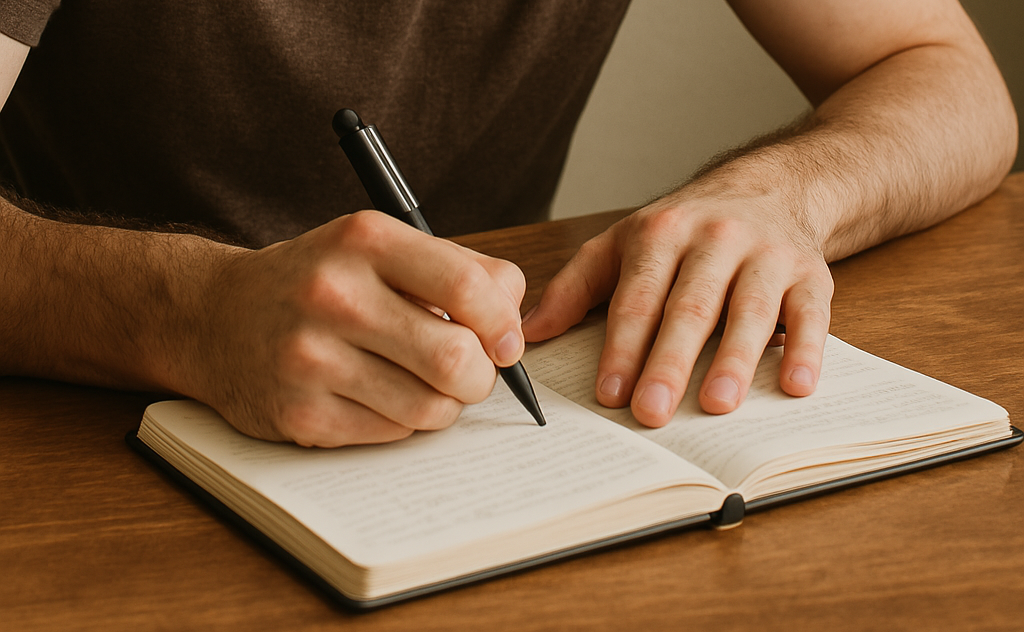How Journaling Can Reduce Stress
In the modern world, stress seems to be at an all time high.
It's ironic that those of us in first world countries almost seem more stressed than those in third world countries that have to walk miles for fresh water. The issue we run into with stress, is that our bodies at a base level, don't understand the difference between stress from a bad day at work, or stress from being chased by an actual threat.
Stress for short bursts can actually be good for you. It can bring more focus and physical precision when it's needed. The issue arises when that time frame extends to much longer periods than those short bursts. This can effect heart rate, blood pressure, metabolism, mood regulation, and your sleep cycle.
What can be done to reduce your stress?
There are many tools like exercise that will help with reducing stress, but the one I'll be focusing on today is journaling.
Daily Journal
Stress often manifests in a racing mind and overwhelming thoughts. Journaling provides a way to slow down the mind. In some cases you can do what's referred to as "Stress-Journaling", which helps you to process and release stressful thoughts and emotions. It's a structured way to slow down, identify the stressors, and create a sense of control. This reduces the impact of the stress on the body and the mind.
Research has shown that journaling about stressful experiences reduces heart rate, blood pressure, and muscle tension. Writing uninterrupted for fifteen minutes is all you need for each session. You can write freely about your stressors without feeling the need to censor yourself.
My favorite quote from Anne Frank really nails this point, "paper has more patience than people."
Another approach would be journaling as a form of mindfulness. Focusing on your current experiences and emotions without judgement. Think about the sensory details and physical sensations, while taking a few deep breaths. This practice brings you to the present moment leaving stressors behind.
"Mindfulness helps you go home to the present. And every time you go there and recognize a condition of happiness that you have, happiness comes." ~ Thich Nhat Hanh
You can use journaling to identify and reframe stressful thoughts. This practice is all about writing out what stresses you and then challenging the validity of those stressors. Consider alternate ways to interpret the situation, which might allow you to see why it shouldn't be stressful. Ask yourself questions and consider the honest answers you give yourself.
"What is the worst that could happen?"
"Is this thought based on facts or assumptions?"
"Why am I allowing myself to worry about something that hasn't happened?"
Use journaling to help with problem solving. Reflecting on different issues and confrontations helps you to externalize the problem. Looking at it from the outside allows you to take another perspective on the issue. Break the problem down into smaller pieces and flesh it out on paper. As you consider solutions you can gather the pros and cons of each. This exploration gives you more to work with and the ability to track progress. Movement on problems towards a endpoint is shown to reduce stress.
"Every problem is a gift – without problems we would not grow." ~ Tony Robbins
If you're trying to figure out ways to reduce your stress, consider starting a daily journal. As you can see there are several approaches you can try, and many more.
The best way to journal is really all about what works for you.
